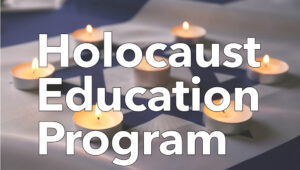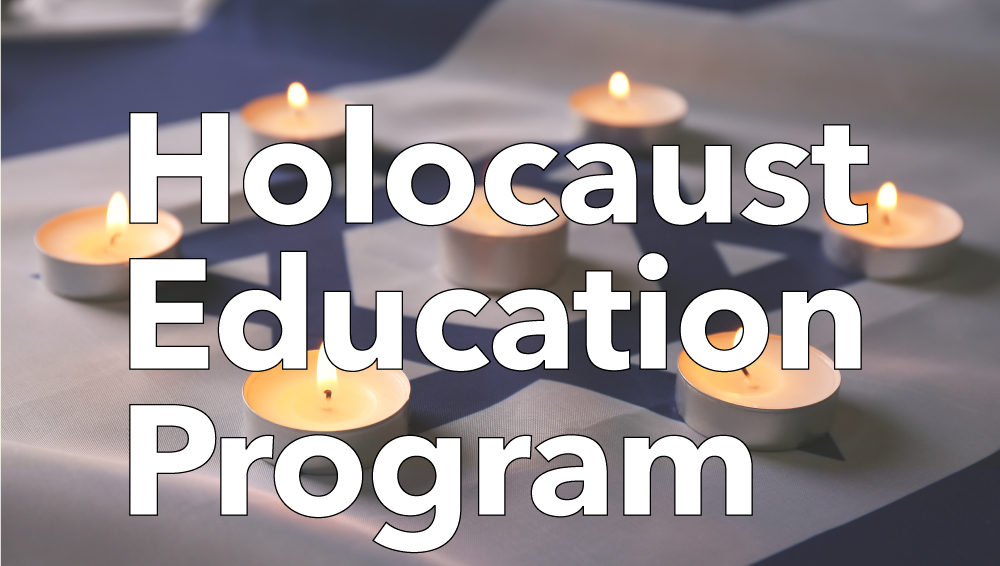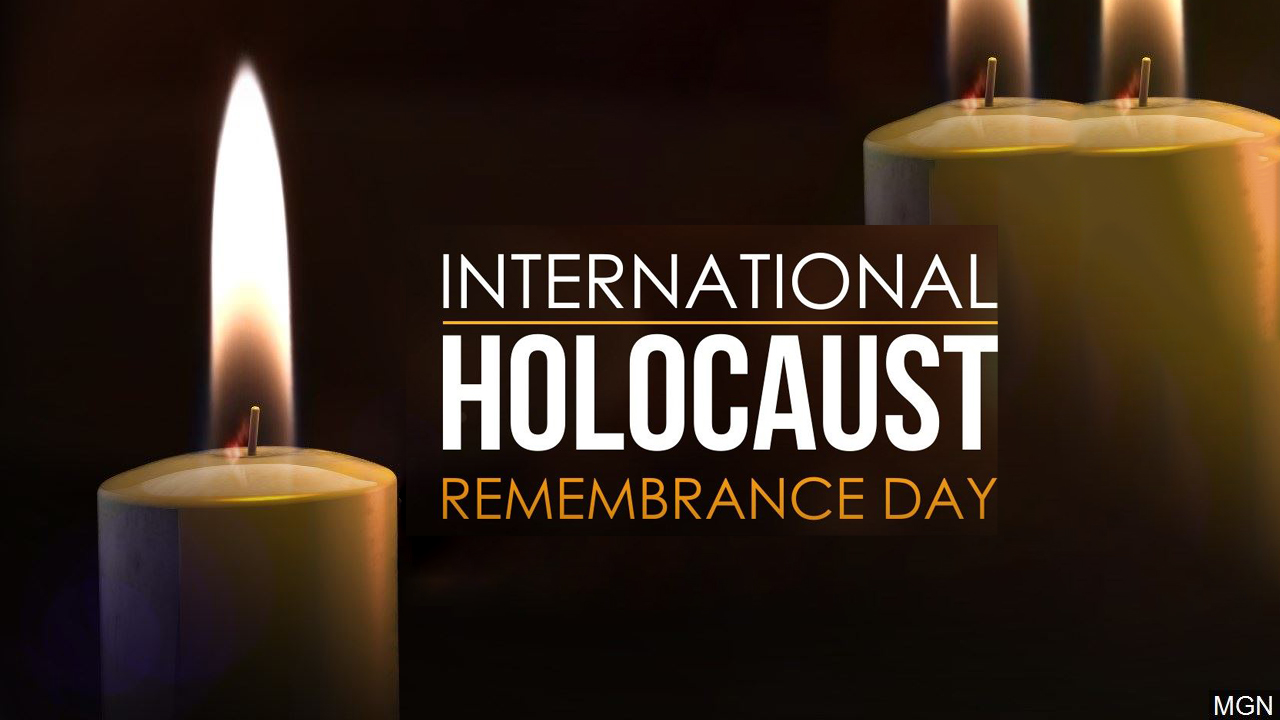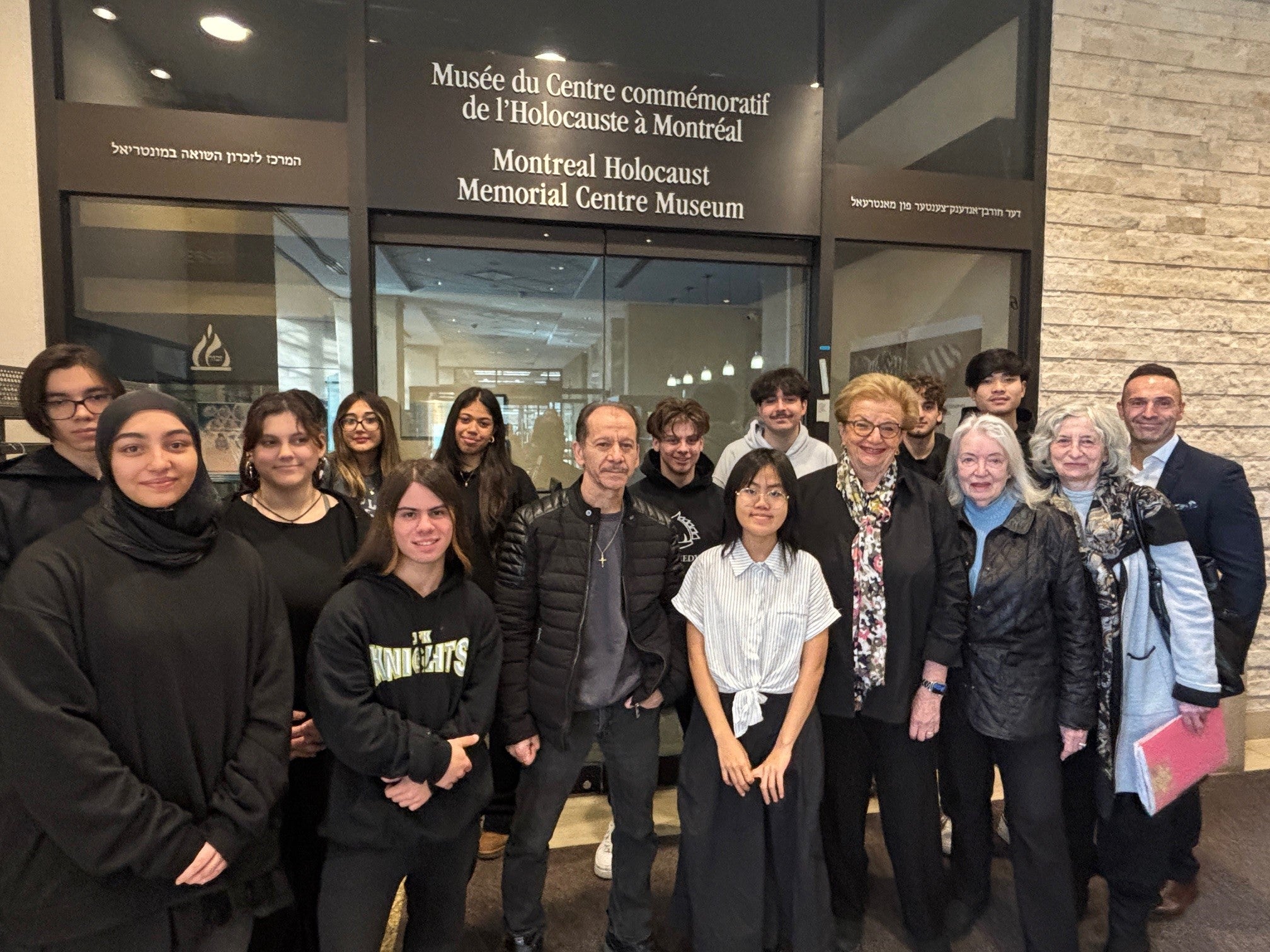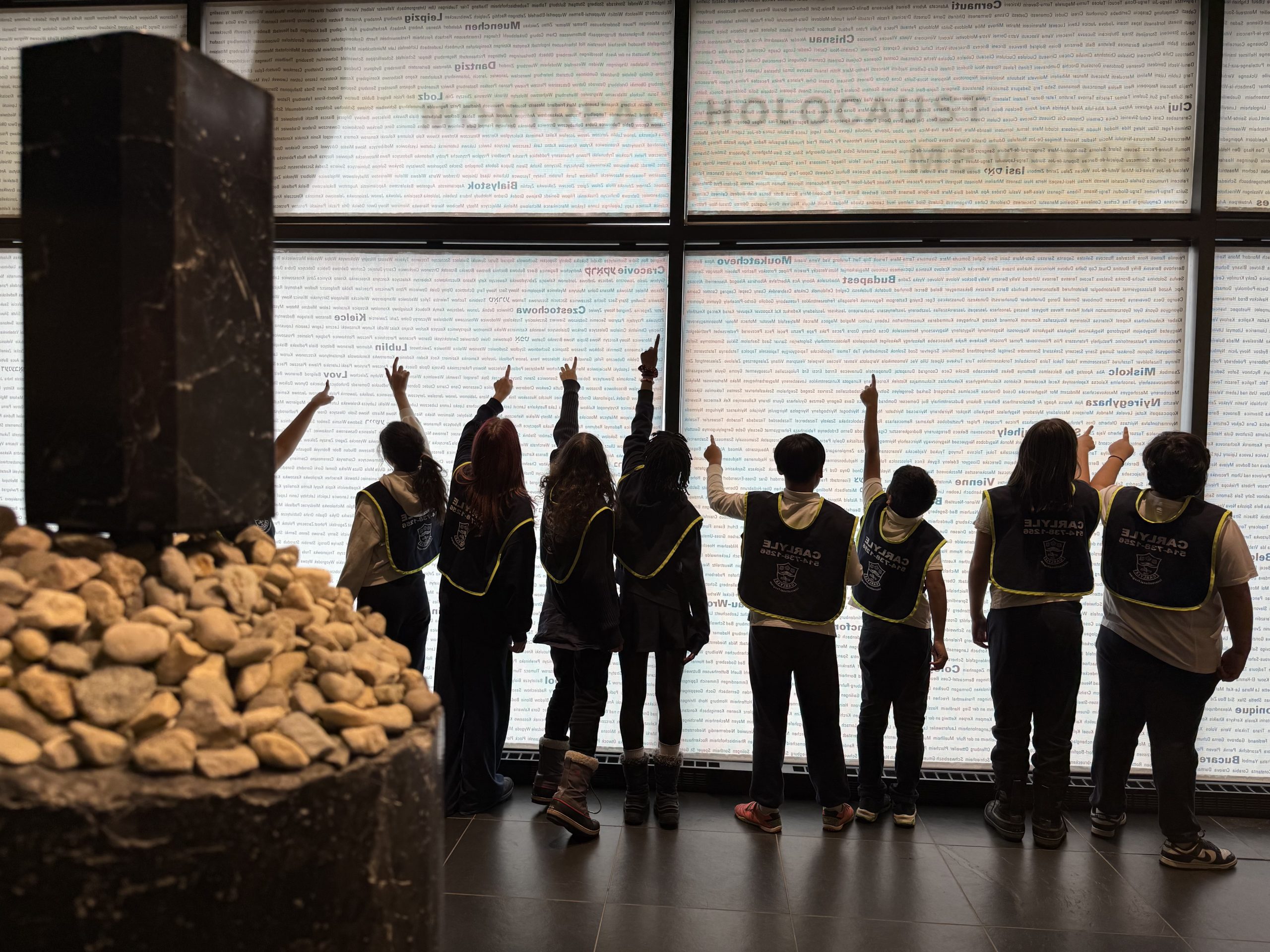By Eliane Goldstein
On January 27, 2023 the English Montreal School Board held a panel discussion about the Holocaust and anti-Semitism on the occasion of International Holocaust Remembrance Day. Co-hosting this panel was Mark Bergman, grandchild of Romanian Holocaust survivor, the late Baruch Cohen and myself, a grade 9 Westmount High School student, descendant of survivors, and creator and host of The Effect on Us podcast which you can listen to here: https://www.buzzsprout.com/1776234.
The panelists were: Fishel Goldig, a Holocaust survivor, joining us thanks to the Azrieli Foundation Holocaust Survivor Memoirs Program; Michelle Sadowski, Educator, Holocaust Survivor Memoirs Program; Eta Yudin, the Vice President Quebec for the Centre for Israel and Jewish Affairs (CIJA); Heidi Berger, Founder and President of the Foundation for Genocide Education; and Rose Gottheil, Visitor Services Coordinator, Montreal Holocaust Museum. Two students from Royal West Academy in Montreal West, Brooke Chazanoff Moss and Emma Teboul also joined us to talk about The March of the Living.
Emma and Brooke are going on the March of the Living in the spring. This an annual educational program brings Jewish students from all over the globe to Poland for a week, where they explore what’s left of the Holocaust and then to Israel for a week where they explore the rebuilding of the Jewish people following the Holocaust and celebrate their survival. When I asked Brooke and Emma why they felt it was so important to go on the March of the Living, it was Brooke who answered first saying “It’s very important for us to keep the story of the Holocaust going and to share with others. Eventually, when the survivors won’t be around anymore to keep educating people about what happened and [to make sure] it never happens again, so antisemitism can hopefully [and] eventually be non-existent.” Emma spoke next saying “The Holocaust is a part of our heritage, and we should really be educated about the topic.” Well said Brooke and Emma, I could not have put it better myself!
The next guest on our panel was Fishel Goldig, a Holocaust survivor, whom I actually interviewed on The Effect on US, so check out his full story there. When Fishel was asked why it’s so important for him to continue telling his story, he answered “We, [the survivors] have an obligation to tell our story to anyone who wants to hear it [and in any language] because it’s very important.” When he was later asked if it was difficult for him to talk about his experiences during the Holocaust he answered “At times it’s very difficult. When I start talking about certain things we experienced in the ghetto it’s something that comes back [to me]. The scene comes back to me just like if I was living it out today.” I think I speak for everyone when I say thank you so much Fishel for continuing to tell your story.
Our third guest was Michelle Sadowski. When she was speaking about what her goal is for Holocaust education she said, “[The] core of what we do is try to humanize history.” Michelle also continued to talk about how to teach about the Holocaust as a parent and she listed some great resources as well.
Our fourth speaker, Eta Yudin, was talking about antisemitism in Quebec. She brought up the fact that Jewish people are the second most targeted minority and the first most targeted religious minority in Canada. She also brought up some other interesting points about antisemitism, but there was one in particular that really stuck out. She compared antisemitism to a canary in a mineshaft, saying, “It’s an indication that something is wrong and it needs to be addressed.” One of the many things that the Centre for Israel and Jewish affairs is trying to do is to make Holocaust studies mandatory in Quebec. As Nelson Mandela once said, “Education is the most powerful weapon which you can use to change the world,” which is exactly what we’re trying to do, use the power of education to make a difference.
Our next guest, Heidi Berger, spoke about the war in Ukraine and explained what can be done by educators to teach about the subject in their classes. She also spoke about what her organization does to educate about the Holocaust, correlating her message back to what previous panelist and Holocaust survivor, Fishel Goldig said about it being his obligation to tell his story. Michelle said in response, “I think it’s our obligation now to go into schools and tell our stories,” which is exactly what this webinar and what the grant obtained by the EMSB for Holocaust education is for.
Our last speaker of the day was Rose Gottheil. She talked about how the visits to the museum work, explaining what a student would learn and see on a tour. When asked what the display has the most effect on the visitors, she talked about The Heart from Auschwitz. This is a small heart shaped booklet, fabricated in Auschwitz by women as a gift for Fania Fainer (née Landau) for her 20th birthday on December 12, 1944 at Auschwitz. Rose describes The Heart of Auschwitz as “a symbol of friendship and resistance and solidarity.”
